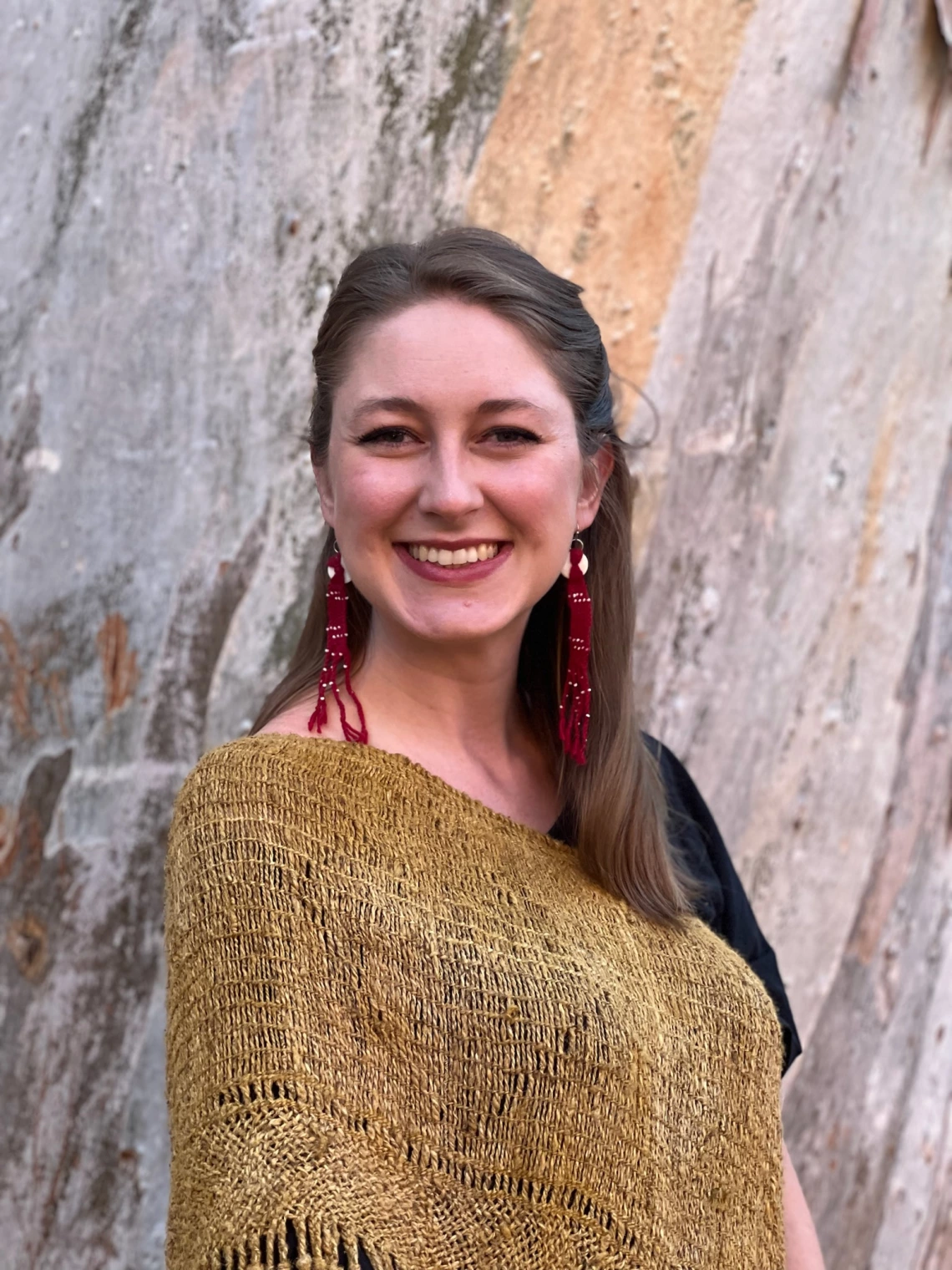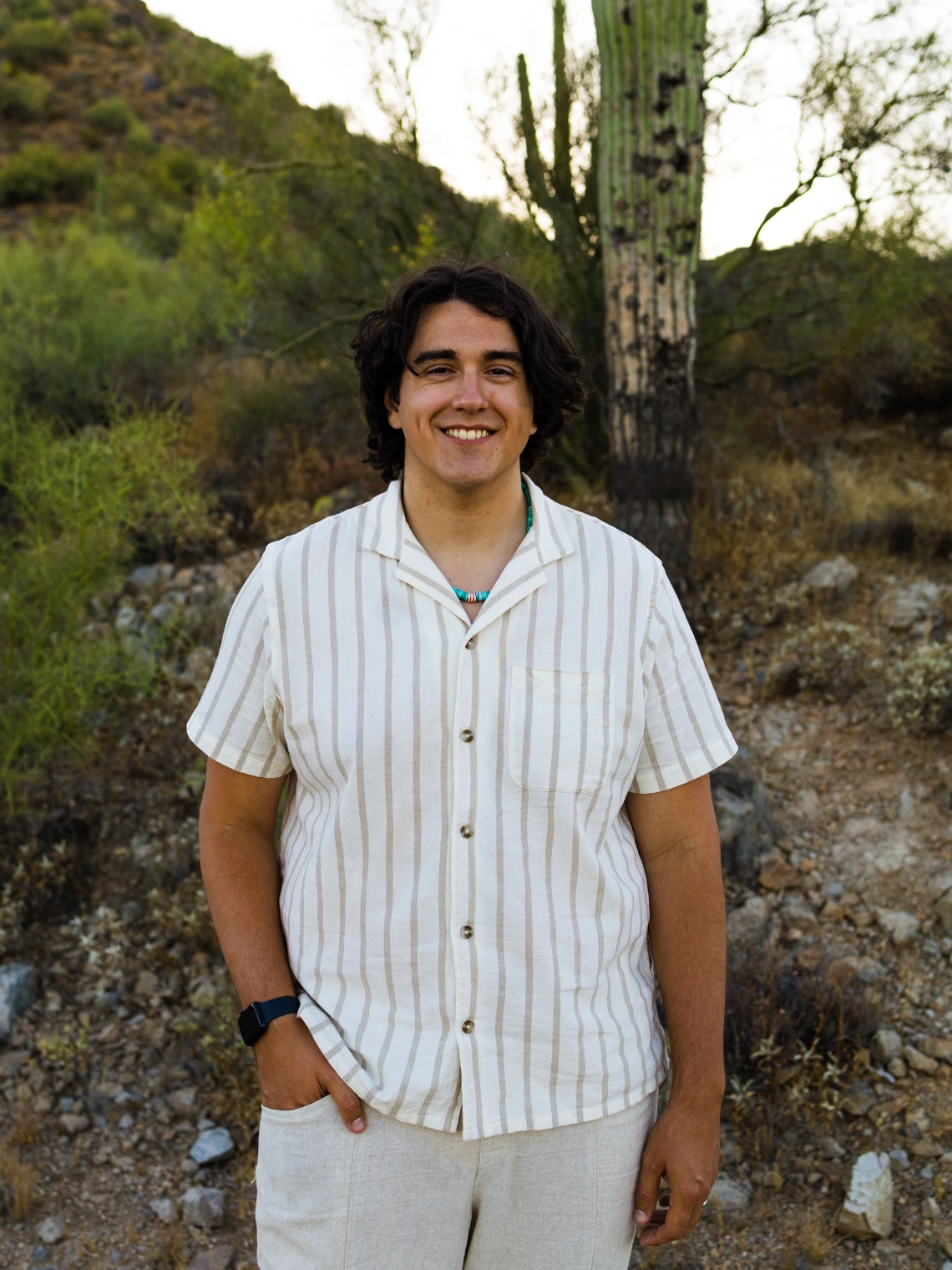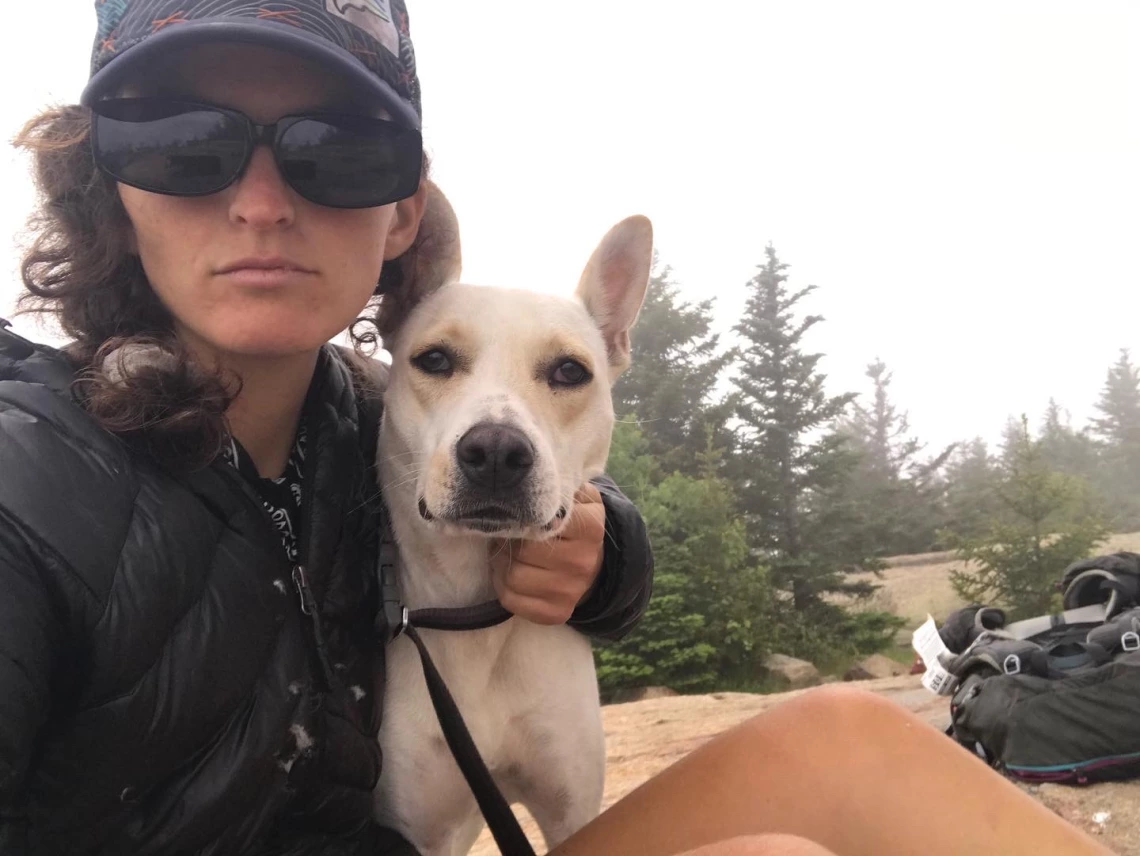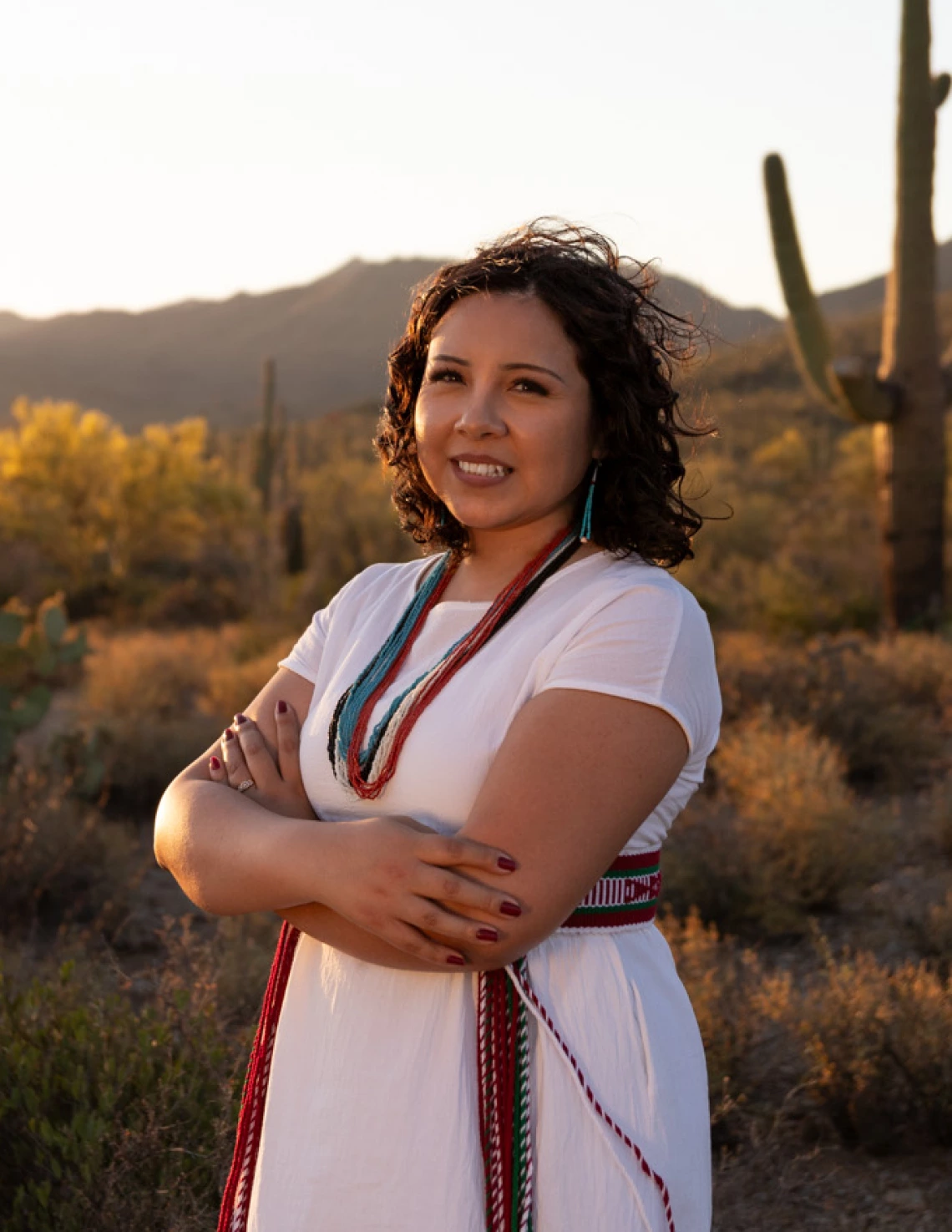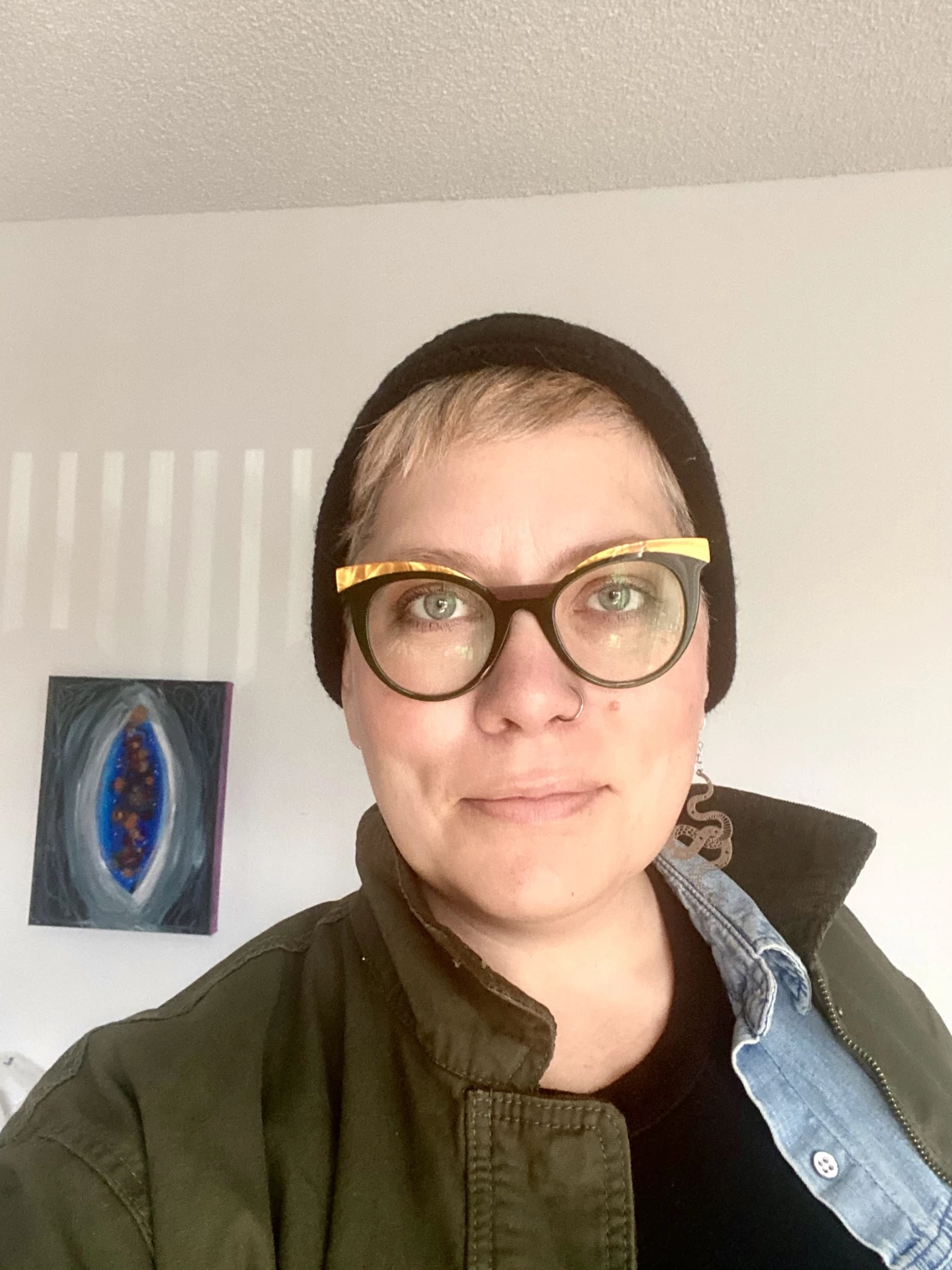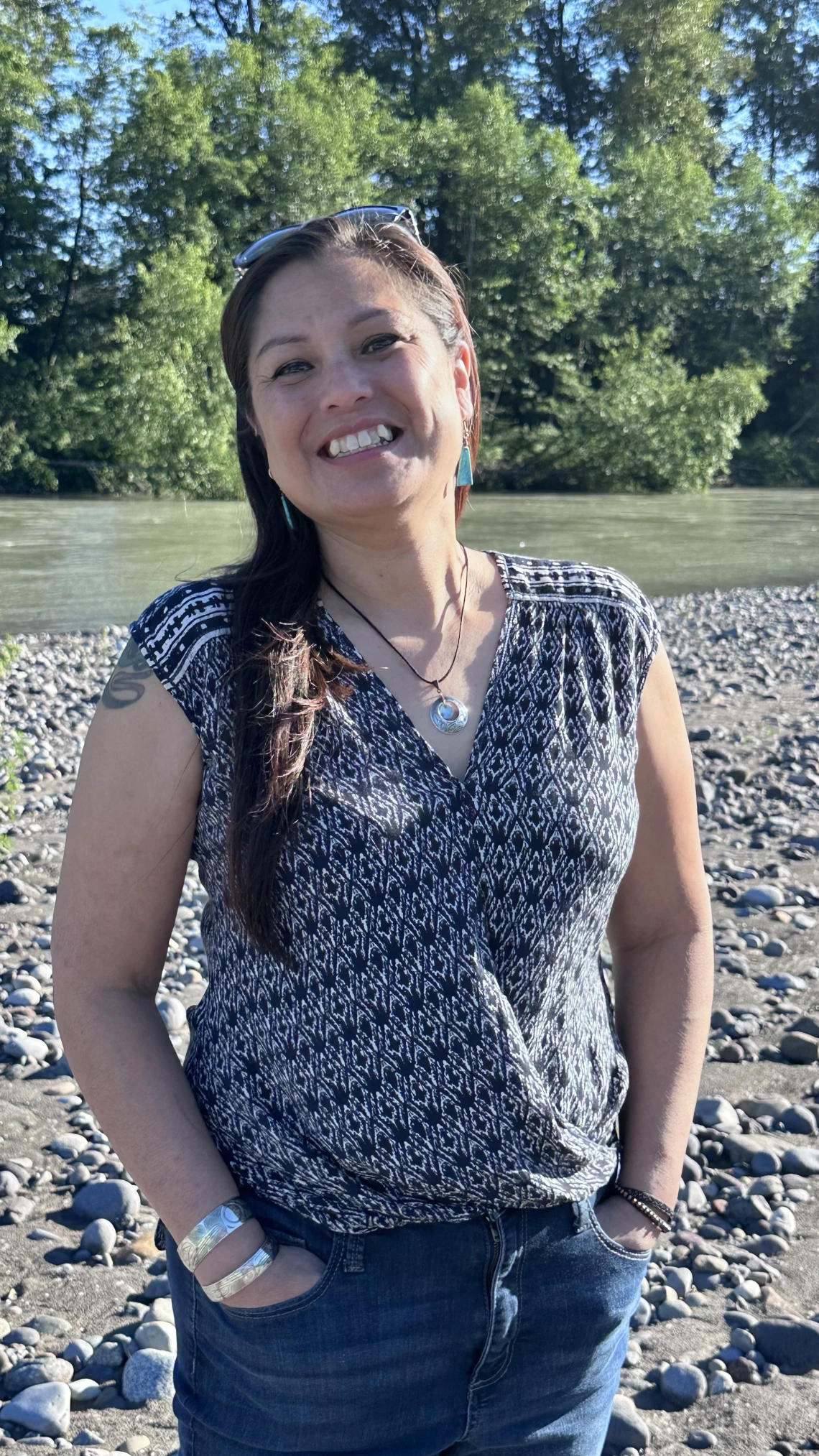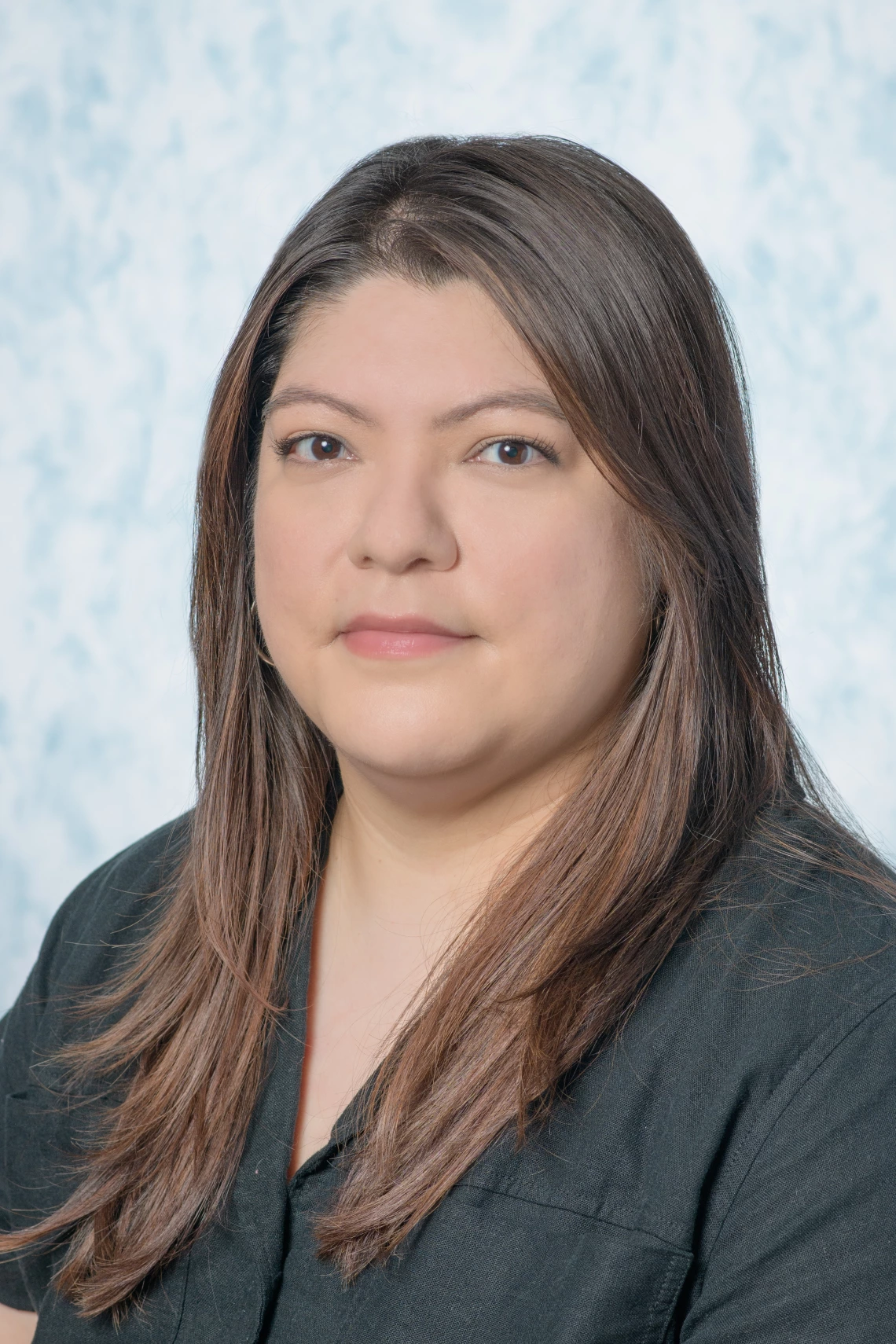Haury Program Awards Seven Native Pathways Graduate Research Awards to Expand Indigenous Resilience Research at the University of Arizona
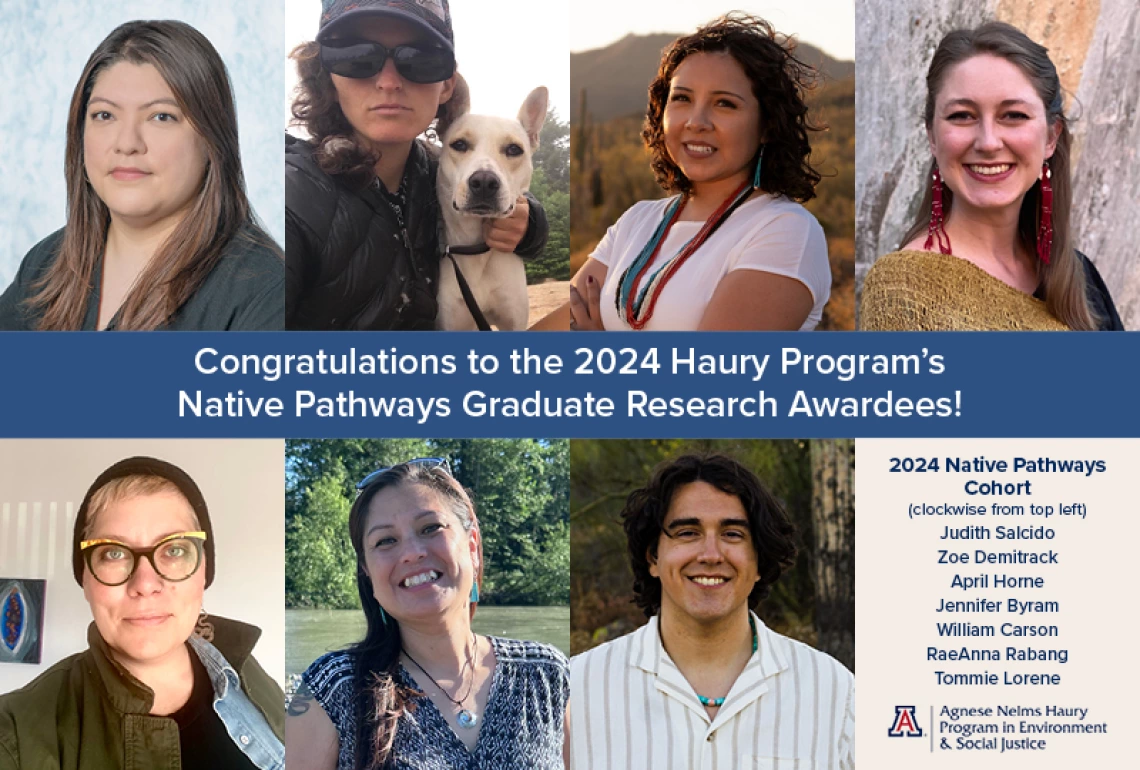
The Agnese Nelms Haury Program in Environment & Social Justice (Haury Program) was established in 2014 to honor the life and work of Mrs. Agnese Nelms Haury. The Native Pathways Graduate Research Awards Program was designed in 2021 to strengthen the academic pathways for Native American and Indigenous Resilience students and scholars, with an emphasis on UArizona programs and graduate students devoted to Native and Indigenous resilience education, research, and outreach. This year’s cohort of awardees includes 7 graduate students from across campus: College of Public Health, College of Education, School of Anthropology, College of Law, Environmental Science and Human Rights Practice Program at College of Social & Behavioral Sciences. Their work addresses a wide range of topics, from traditional textile technologies, identity and health correlations, soil and traditional foods pollution, and college affordability for Native American students, to tribal sovereignty, Traditional Environmental Knowledge, tribal food traditions and Indigenous storytelling. The awardees will be working on the University of Arizona campus, as well as with the Choctaw Nation of Oklahoma, the Qawalangin Tribe in Alaska, the Duwamish Tribe in Washington, Coash Salish people in British Columbia and Tohono O’odham and Mexican populations in Western Pima County.
“Few things bring the Haury Program more pleasure and pride than fortifying Native Pathways at UArizona. This annual grant process again has elevated Indigenous voices, supported amazing research and outreach, and advanced our core mission of promoting tribal resilience,” shared Haury Program Director, Prof. Toni Massaro. Nancy Petersen, Assistant Director, added: “The Haury Program is dedicated to honoring the University of Arizona’s commitment as a land-grant institution to the Native American students and tribal nations. These awards put commitment into action.”
Below are more details on each of the 2024 awardees and their graduate research projects:
The 2024 cohort of awardees is the largest to date, and “seeing the program grow each year is a wonderful affirmation of the vast talent at the University of Arizona and devotion to Indigenous resilience ends,” said Prof. Massaro. 2024 awardees are joining fourteen awardees from previous three years. One of the 2022 awardees, Dr. Jacelle Ramon-Sauberan, Tohono O’odham, spoke to significance of Haury awards in expanding Indigenous Resilience research and more:
When I decided my dissertation research was going to be on the history of land and water in San Xavier, I realized I was not only creating something that had never been done before but I was also creating something that was vital for my community. I captured the resiliency of my community/my relatives who have stood up over time to protect our land and water. I also appreciate how the Haury Program highlighted me as an O’odham Scholar because there are not many Native/Indigenous People let alone O’odham who pursue higher education. So, for me to now have the title of Dr. Jacelle Ramon-Sauberan, I am proud to say I am a second-generation Wildcat, a three-time graduate of the University of Arizona and first in my family to earn a PhD. I see myself as a role model who is breaking barriers and paving the way for others. I hope others especially youth know that they can achieve what I did if not more. Whenever I talk to Native youth I say to them, “If this rez girl can do it, so can you.”
For more information on past awardees and their projects, please visit Native Pathways Awards website. And if you would like to meet the 2024 awardees and learn more about their projects, please join us on September 4th, at 10 a.m. at the UArizona Arizona Institute for Resilience at ENR2 Building!

